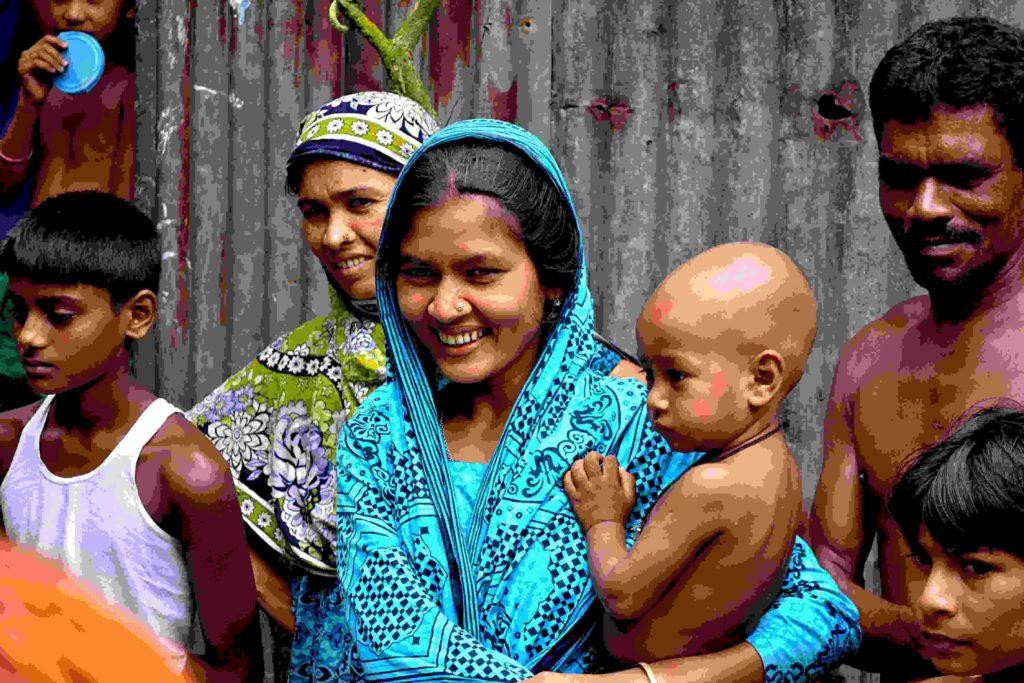
Bangladesh’s health care system has significantly improved over the past decades, among others reducing maternal and child mortality, increasing life expectancy and universal immunisation coverage. International indices point in the same direction. By way of example, even on the – since the pandemic somewhat notorious – (2021) Global Health Security Index, Bangladesh ranked ahead of its neighbouring countries Pakistan, Sri Lanka and Nepal. In spite of this generally improved picture, however, the rising proportion of out-of-pocket payments (OOP) (68.5% in 2020), along with the increasing trend of inflation in the country in recent years, has led to ever more people being worried about incurring catastrophic health expenditure. This increased risk, in turn, is a key challenge for achieving Universal Health Coverage (UHC) by 2032, a goal Prime Minister Sheikh Hasina committed to at the 64th World Health Assembly in May 2011. Bangladesh has set up a number of policy initiatives to make further progress towards UHC, and try tackle the poor community’s catastrophic health expenditures. However, the aggressive marketing policy of the pharmaceutical industries, the “percentages” from diagnostic labs, and sub-standard private clinics along with the politicization of people in business and physicians, aren’t exactly helping in this regard, and are thus jeopardizing further progress in health equality. This short article will zoom in on this issue.
Let’s kick off with pharma’s marketing policies. Scholars and media have reported that physicians’ prescribing behaviour is heavily influenced by the promotional methods of pharmaceutical industries offering monetary and non-monetary “incentives”. This has become a very common practice in both public and private healthcare entities. In 2016 already, a prominent public healthcare activist claimed that tackling this unethical marketing policy could reduce 70% of the overall medicine price. In addition to being very problematic from a health economic perspective, this uncontrolled promotion practice often encourages the over-prescription tendency of physicians. This poses a serious public health concern in the country, for instance, in terms of antibiotic resistance, adverse drug effects, harmful drug interactions, and cognitive impairment.
But it’s more than just a policy challenge, clearly. The roots of the problems have to do with the country’s political economy. Let’s dissect some of the main challenges and problems in this regard.
61% of Bangladesh’s parliament members are business people, many of whom also control part of the media. It’s for a reason that today’s parliament is also known as “the parliament of the millionaires”. Media in Bangladesh are owned by financially and politically influential people and business groups. This severely jeopardizes the media’s role as “the fourth pillar” of the country in terms of ensuring accountability and being a platform for people’s voices. By way of example, recently, the Beximco Pharmaceutical Company exploited its implicit Covid-19 vaccine monopoly. Very few news outlets reported that it made 77 BDT (0.65 USD) profit for every single dose of vaccine. Part of the explanation: the company owner of Beximco happens to be Salman F Rahman, a private industry and investment adviser to Prime Minister Sheikh Hasina. He also owns a widely circulated national newspaper and an influential television channel.
In addition, polarized groups of medical doctors heavily influence the country’s strategic health policy decisions. There are two of them: physicians allied to the Bangladesh Awami League (the current government party) formed Shadhinota Chikitsha Parishad, while the Doctors Association of Bangladesh was formed by physicians linked to the Bangladesh Nationalist Party (BNP), which in recent years has refused to take part in elections due to a very biased election system. Both groups informally enjoy supreme power in terms of strategic decision-making about health services depending on who’s in power. Lately, of course, the former has the upper hand.
In short, this deep business-politics-physicians alliance signals a “dark triad” of vested groups and power players in the country’s healthcare sector.
There is no panacea for this multifaceted “political economy of health” conundrum in Bangladesh. But the issue is more than worth discussing in different stakeholders’ forums, and collective effort will be needed to tackle these problems, which will in turn improve health equity by safeguarding from catastrophic health expenditures. Scientific evidence is also required to help address some of the incentive and performance issues lying in the health system itself. It’s clear that the government incentive system for physicians needs to be rethought and revisited. Medical product and service promotion policies must be included in the existing health market regulatory frameworks, like the Drug Act 1941, National Drug Policy 2005, and Bangladesh Medical and Dental Council Act 2010.
After significant Millennium Development Goals (MDG) achievements, Bangladesh is committed to attaining the Sustainable Development Goals (SDGs), including the health related ones. Goal 3 (health and wellbeing), the main health SDG goal, is closely connected to all other policy goals and targets. While the country tries to make further progress towards UHC, the recent Covid pandemic has been a setback. As is the case in other countries, Bangladesh’s healthcare system is now struggling to Build Back Better. However, as one of the most crucial indicators of UHC is protecting people from catastrophic health expenditure, it’s clear from the above that health marketing policies must be reformed and existing stewardship tools strictly implemented, among others by decisively dealing with some of the ‘dark triad’ issues.
Above all, health care aims to alleviate patients’ physical and emotional discomfort and ensure people’s overall well-being without any systemic discrimination. No injustice is as severe as injustice in health. As Martin Luther King already uttered 40 years ago, “Of all the forms of inequality, injustice in health is the most shocking and inhumane.”
Let’s hope Bangladesh will continue to make further progress in this regard. But that will probably imply a bit more frank ‘speaking’ about the triad of politics, business and physicians. And then doing something about it.